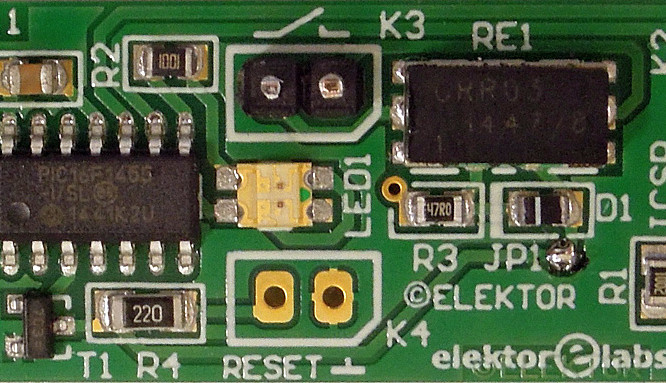Metal glue to replace solder and thermal paste
March 03, 2016
on
on

As components get ever smaller the control of industrial soldering processes become more critical. Researchers at Northeastern University in Boston have developed a bonding method which could render the entire soldering process obsolete. A new metal bonding called MesoGlue provides both electrical and thermal conduction at room temperature. It adheres to all forms of ICs, metallic conductors and other SMDs on boards of glass or plastic.
The thermal and electrical properties are the result of metallic nanorods with a metal core and a shell composed of Indium on one surface and Gallium on the mating surface. The nanorods arrange themselves along the substrate like the bristles of a hairbrush. When the two surfaces are in physical contact the nanorods interlock and the shells of Gallium and Indium liquefy resulting in a liquid metal alloy between the nanorods which eventually solidifies.
Simulations indicate that the bonding method can achieve an average of 8 °C lower operating temperature of a CPU compared with a traditional thermal paste interface to a heatsink. In addition to replacing thermal paste MesoGlue can also replace solder for mounting components. For more information visit ‘Metallic Glue for Ambient Environments Making Strides’ in the technical publication Advanced Materials & Processes.
The thermal and electrical properties are the result of metallic nanorods with a metal core and a shell composed of Indium on one surface and Gallium on the mating surface. The nanorods arrange themselves along the substrate like the bristles of a hairbrush. When the two surfaces are in physical contact the nanorods interlock and the shells of Gallium and Indium liquefy resulting in a liquid metal alloy between the nanorods which eventually solidifies.
Simulations indicate that the bonding method can achieve an average of 8 °C lower operating temperature of a CPU compared with a traditional thermal paste interface to a heatsink. In addition to replacing thermal paste MesoGlue can also replace solder for mounting components. For more information visit ‘Metallic Glue for Ambient Environments Making Strides’ in the technical publication Advanced Materials & Processes.
Read full article
Hide full article


Discussion (2 comments)